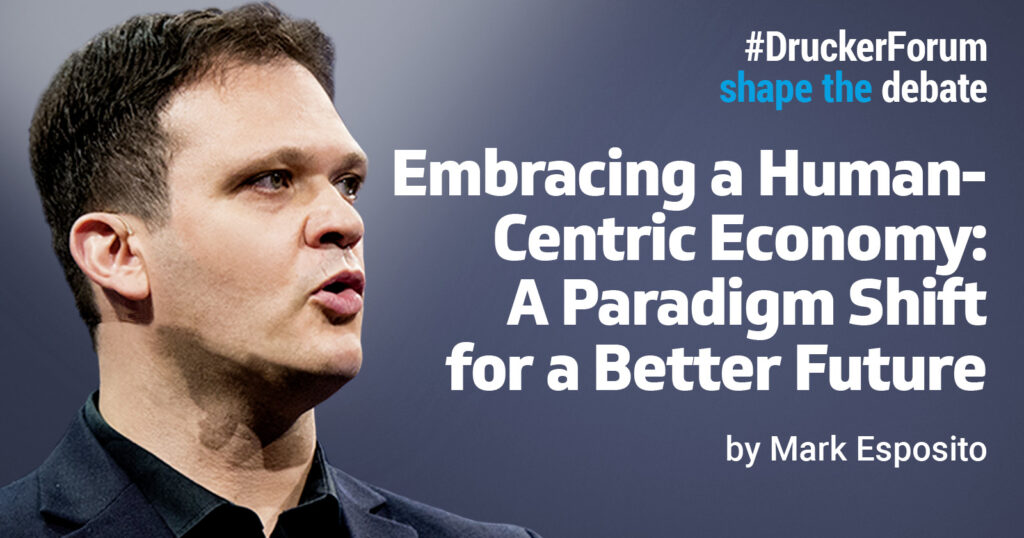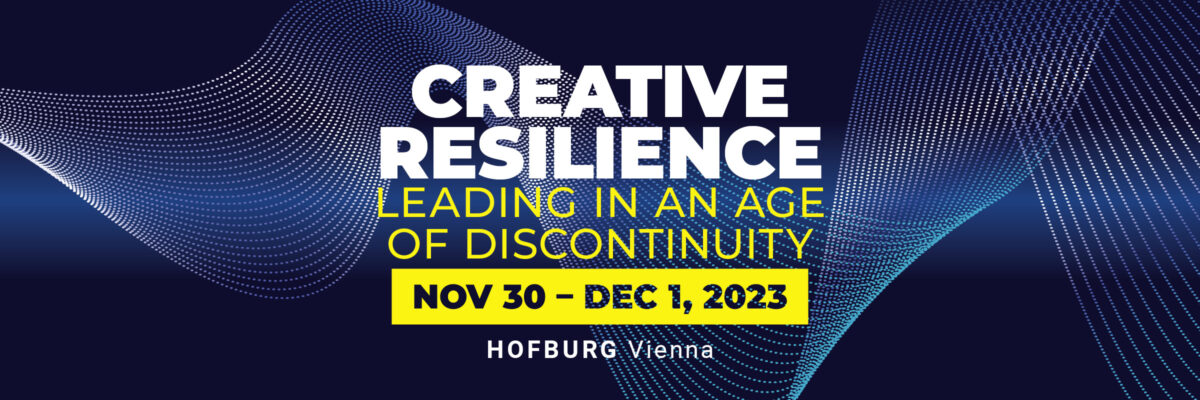
Introduction
In our rapidly evolving world, where technology and automation have become integral parts of our daily lives, it’s essential to pause and reflect on the kind of society we want to create. The traditional economic model, centered on efficiency and profit, has often neglected the fundamental element of humanity. However, there’s a growing movement advocating for a paradigm shift towards a more human-centric economy that prioritizes people’s well-being and fulfillment over pure economic growth. Human-centric creativity, driven by empathy and understanding, can lead to innovative solutions that address economic and societal challenges. It encourages us to consider long-term implications and prioritize the enhancement of the human experience alongside technological progress. Building resilience over time is essential to thriving amidst uncertainty. A human-centric approach to resilience empowers individuals and communities to bounce back stronger and more united. It’s about equipping ourselves to respond effectively when challenges arise and fostering security and well-being.
The Current Economic Paradigm
Our current economic paradigm is often described as growth-driven capitalism. It places profit maximization and efficiency at the forefront, often at the expense of social and environmental considerations. In this system, success is measured by GDP growth, stock market performance, and quarterly profits, which can sometimes lead to short-term thinking and a disregard for the long-term well-being of individuals and the planet.
While this approach has brought unprecedented material wealth and technological progress, it has also given rise to income inequality, environmental degradation, and a sense of disconnection among individuals. Many argue that it’s high time we reassess our priorities and embrace a more human-centered approach.
A human-centric economy is rooted in the belief that the economy should serve to enhance human well-being and quality of life. This paradigm shift requires a holistic approach that considers the physical, emotional, and social needs of individuals and communities such as:
Well-being Over GDP: One of the central tenets of a human-centric economy is to shift our focus from GDP growth to measures of well-being and happiness. Bhutan, with its Gross National Happiness Index, serves as a pioneering example of a nation prioritizing the well-being of its citizens over material wealth.
Inclusive Growth: A human-centric economy seeks to ensure that the benefits of economic growth are shared equitably among all members of society. This means addressing income inequality and providing equal access to opportunities and resources.
Environmental Sustainability: Recognizing that humans are intimately connected to the environment, a human-centric economy places a strong emphasis on sustainability. This involves transitioning to cleaner energy sources, reducing waste, and protecting natural ecosystems.
Work-Life Balance: The current economy often demands long working hours and sacrifices personal and family time for the sake of productivity. A human-centric economy promotes work-life balance, valuing leisure, family, and personal fulfillment as much as productivity.
Empathy and Compassion: Human-centric businesses and institutions prioritize empathy and compassion in their operations. This includes fostering a culture of care and support for employees and customers alike.
The Necessary Paradigm Shift
Shifting to a human-centric economy requires a fundamental change in our thinking and actions. Here are some key steps to facilitate this transformation:
In reimagining our concept of success, it becomes imperative to shift our focus away from the narrow pursuit of financial wealth and power. Instead, we should measure success by the quality of life we enjoy, the vitality of our communities, and the overall health of our planet.
To thrive in this new era, our education systems must undergo a transformation. We need to go beyond imparting technical skills and incorporate teachings that nurture empathy, critical thinking, and emotional intelligence. These qualities are not mere luxuries but fundamental tools for navigating a human-centric economy.
The role of governments in shaping our economic landscape is pivotal. Policy reforms must be introduced to incentivize businesses to embrace human-centric practices. These may include fair wages, prioritizing the well-being of employees, and adopting sustainable operational models.
In this paradigm shift, business leaders hold a unique position of influence. They can become torchbearers of change by fostering corporate cultures that prioritize the mental and emotional well-being of their workforce. Moreover, they can actively engage with the communities they serve and champion sustainable practices within their organizations.
Unleashing creativity aimed at building resilience begins by fostering an environment that encourages experimentation and innovation. This embracing diverse perspectives and encouraging individuals to think beyond traditional boundaries. It can create spaces for open dialogue and collaboration, allowing ideas to flow freely. Also it encourages a culture of learning from failures and adapting to change. By valuing creativity and resilience as intertwined strengths, individuals and organizations can navigate challenges with adaptability and find innovative solutions that foster long-term sustainability.
As individuals, we are not powerless in this transformation. Our consumer choices wield considerable influence. By consciously supporting businesses that align with human-centric values and boycotting those that do not, we send a resounding message to the market that our priorities have evolved.
At the heart of a human-centric economy lies the imperative of building robust, resilient communities. This endeavor requires local initiatives and grassroots movements that not only promote human well-being but also foster a profound sense of connection among individuals.
Conclusion
A human-centric economy is not an abstract ideal but a practical vision for a better future. It’s about placing human well-being and happiness at the core of our economic and social systems. While this paradigm shift may seem ambitious, it’s necessary to address the pressing challenges of our time, from inequality and climate change to mental health and social cohesion and build a construct where creativity builds resilience and resilience builds new foundations for our society. By reevaluating our priorities, embracing empathy, and making intentional choices in our personal and collective lives, we can work toward a more human-centered world that benefits us all.
*This blog is partially extracted from the following article:
Mark Esposito, Johan Roos; Reimagining the Economy: Toward a Human-Centric Approach. Innovations: Technology, Governance, Globalization 2023; 13 (3-4): 36–42
About the Author:
Mark Esposito is Professor at Hult Int’l Business School and at Harvard University’s Division of Continuing Education. At Hult he directs the Futures Impact Lab. He is Co-Founder of Nexus FrontierTech & Circular Economy Alliance.

